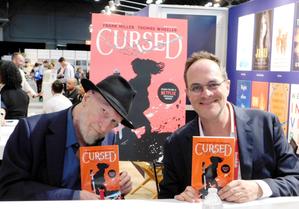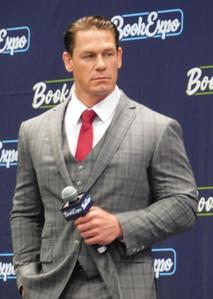If a good story is told well enough, you want to hear it again. And again. And then at least once more, because you're sure there's so much left to discover. --Ben Brantley, New York Times theater critic, in a recent piece on Jez Butterworth's play The Ferryman
The day after BookExpo ended, I saw The Ferryman, a brilliant Broadway production that is likely to win many of its nine Tony Award nominations this Sunday. Brantley, who has seen the play four times in London and New York, observed that Butterworth "tells a spellbinding story that is also all about storytelling. And I mean all forms of stories--national folklore, family legends, political news, even recollections of things that occurred only minutes earlier, which had seemed to turn into anecdote even as they were happening. The Ferryman is a celebration of the human--and classically Irish--urge to give life shape through narrative, and a lamentation for those who find themselves trapped in myths that assume the inevitability of fate."
Having just spent three days among hundreds of storytellers, I found myself thinking about how the layering of tales, real and imagined, weaves through our lives. In particular, I recalled two BookExpo events where layered stories were a central aspect of the presentations.

|
|
| Frank Miller & Thomas Wheeler | |
One of the events featured Thomas Wheeler and the legendary Frank Miller, creators of Cursed (S&S Books for Young Readers), which will be released in October and is being developed as a Netflix series. The graphic novel re-imagines Arthurian legend from the point-of-view of 16-year-old Nimue, who first wielded Excalibur and ultimately became the Lady of the Lake.
While discussing his collaboration with Miller, Wheeler spoke about the confluence of storytelling on the page and on screen, a magical formula itself: "Cursed was intended to be a book. We were writing and illustrating a book, and Netflix started to reach out and say, we'd like to do this. We were keeping them at bay for a while and working on the book. I do think there was an interesting storytelling opportunity in that, as the book was approaching being finished, how this would be interpreted. There was a moment in time where we considered how do we tell this story in different ways.... I do think fans of the show will get content that is different from the book, that is still from the same creators. And those who read the book will have a more intimate relationship with the characters than they will on the show. I would say that the book and the show are friends, not family."
Miller observed that their interpretation of Arthurian legend "also carries great loss in an adventure story. That is, the heart of this is everything from love and romance to war to magic, and the nature of honor and civilization themselves. So this is a story that has it all. And in every interpretation of it that's been worthy, that I've ever read, it's touched in different ways on all these themes. So it's just..." He paused, then quipped: "I hate to tell you, but Arthur's a good story! I broke the news right here!"
 |
|
| John Cena | |
Whether you're a fan of professional wrestling or not, its essence is the art of storytelling and myth-making. One of WWE's brightest stars, wrestler/actor/writer John Cena, spoke at BookExpo on behalf of his children's books, Elbow Grease and the upcoming sequel Elbow Grease vs. Motozilla, both illustrated by Howard McWilliam (Random House Books for Young Readers).
A commanding presence on the Downtown Stage, Cena chose to tell a story about his own fear of entering the children's book world: "It's completely new, and I knew that often, as you are the book buyers and the book purveyors and the keepers of the information, I guarantee you see a ton of books with celebrities' names on them.... But when I went back to look at the data of actually who is following me, who enjoys the messages, what messages they enjoy, a kid's book seemed like the perfect thing to do. But then I had to convince you guys that I actually really wanted to do this.... So the book itself was about a two and a half year process and it's something that was a labor of love; something I truly believe in."
Noting that "in the storytelling business, if the audience doesn't care about the individual, you are done," Cena said it was through the WWE he learned the art of storytelling. And after a decade in the ring, "I really asked myself an open philosophical question--Why am I here? And the answer to that was I love storytelling. I come back every night, five nights a week in front of different audiences and tell this story. It's not the falling down. It's not the stunts. It's the good guy/bad guy, good vs. evil narrative that I enjoy so much.... I wanted to tell stories. And since then, whether you've liked what I've done or not, I can consistently say, without a shadow of a doubt, my heart is in the work, and it makes it easy to talk to you guys."
King Arthur and Frank Miller and graphic novels and Netflix and pro wrestling and kids' books--all in a day's work at BookExpo '19.

